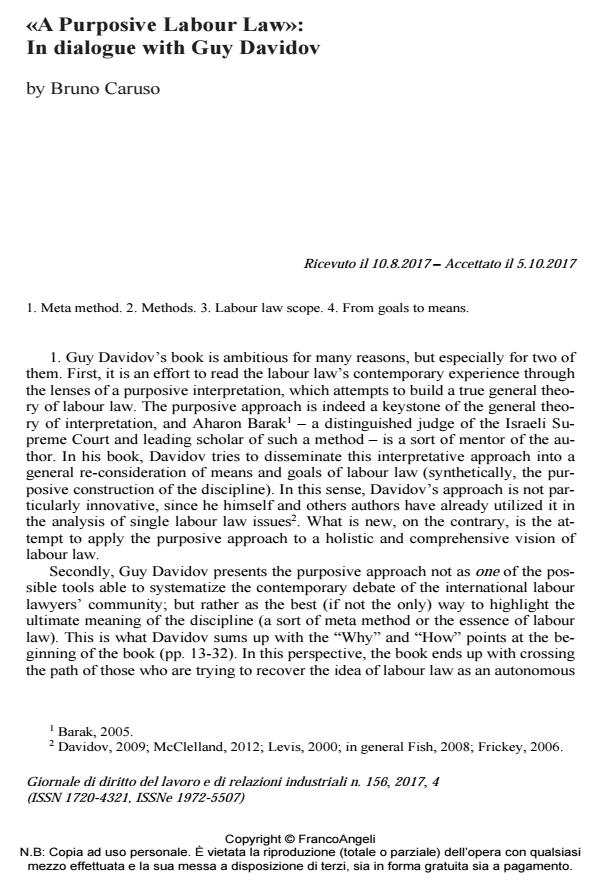«A Purposive Labour Law»: In dialogue with Guy Davidov
Journal title GIORNALE DI DIRITTO DEL LAVORO E DI RELAZIONI INDUSTRIALI
Author/s Bruno Caruso
Publishing Year 2017 Issue 2017/156
Language English Pages 9 P. 749-757 File size 167 KB
DOI 10.3280/GDL2017-156006
DOI is like a bar code for intellectual property: to have more infomation
click here
Below, you can see the article first page
If you want to buy this article in PDF format, you can do it, following the instructions to buy download credits

FrancoAngeli is member of Publishers International Linking Association, Inc (PILA), a not-for-profit association which run the CrossRef service enabling links to and from online scholarly content.
Bruno Caruso, «A Purposive Labour Law»: In dialogue with Guy Davidov in "GIORNALE DI DIRITTO DEL LAVORO E DI RELAZIONI INDUSTRIALI " 156/2017, pp 749-757, DOI: 10.3280/GDL2017-156006